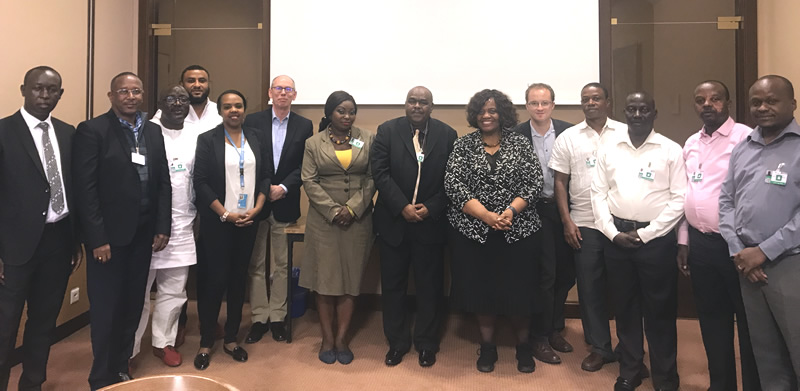Written by Arántzazu Sánchez
Article No. 23 [UNCTAD Transport and Trade Facilitation Newsletter N°79 - Third Quarter 2018]
The WTO Trade Facilitation Agreement (TFA) stipulates, that countries “shall establish and/or maintain a national committee on trade facilitation or designate an existing mechanism to facilitate both domestic coordination and implementation of the provisions of this Agreement.”
For more than 40 years, UNCTAD has been working in the support of National Trade Facilitation Committees (NTFC). UNCTAD is proud to have been amongst the organizations leading the call for establishment of these bodies. More recently, UNCTAD has developed the Empowerment Programme for NTFCs which is successfully being deployed in a dozen of countries.
One of the key functions of the NTFCs is coordination. However, the WTO TFA also contains other coordination functions. The role of the National Transit Coordinators is set out in Article 11.17 and states that: “Each Member shall endeavour to appoint a national transit coordinator to which all enquiries and proposals by other Members relating to the good functioning of transit operations can be addressed”.
By September 2018, only a few WTO Member States and observers had appointed and notified to the WTO national transit coordinators. As a matter of fact, the TFA does not contain any obligation for WTO Member States to notify WTO about the transit coordinator, but with a view to ensuring coordination on transit, which by nature is a multi-country operation, it seems to be only natural that a catalogue of national transit coordinators is established at WTO level.
Unfortunately, it seems that the the lack of knowledge on the nature of the transit coordinator’s role, its functions and expectations is another reason for the lack of appointments and notifications by Member States to WTO.
As a result, UNCTAD in 2018 took the initiative to organize a first Empowerment course for current and future national transit coordinators in Geneva from 23 to 29 April 2018. The training workshop, which was financed by Her Majesty Revenue and Customs and the World Trade Organization (WTO), served as a pilot for this UNCTAD new training module.
The objectives of the course were:
-
Help developing and least developed countries to better understand the role and functions of the national transit coordinator, especially in the context of the Article 11 of the WTO TFA
-
Train the national transit coordinator to have a better knowledge of the international regimes guiding the concept of transit in international trade, to make sure that enquiries and proposals are evaluated and answered considering international law.
-
Encourage countries to notify their contact points for their national transit coordinators
-
Foster freedom of transit
The workshop was held in the context of UNCTAD effort to support trade facilitation reforms in developing and least developed countries. It brought together 10 participants from Eastern and Western Africa. Eight of these participants represented the following countries: Ghana, Kenya, Liberia, Nigeria, Rwanda, Sudan, Tanzania and Uganda. The other two participants represented the Northern Corridor Transit Transport Coordination Authority and the Central Corridor Transit Transport Facilitation Agency.
Participants had the opportunity to learn from a wide range of key experts that UNCTAD partnered with for this event, including, the UN Economic Commission for Europe, the UN Office of the High Representative for the Least Developed Countries, Landlocked Developing Countries and Small Island Developing States (UN-OHRLLS), the World Customs Organization (WCO), WTO, the European Commission (EU)and the International Road Union (IRU).
The course did not only take participants in a journey throughout the history of the concept and application of transit, but also support national transit coordinators to develop specific terms of reference and an action plan.

Overall, all participants agree that the workshop has helped them to improve their general knowledge on the role of transit coordinators. Nine out of ten agree that the workshop has helped them improve their skills and their confidence in assuming the role as a national transit coordinator. They claimed that one of the most useful aspects of the training was the visit to the Swiss-French Border at Bardonnex, where they could hear from Swiss Customs experts about the transit procedures between the two countries.
UNCTAD plans, subject to funding, to continue working with other partner organizations to deliver similar workshops on a regional basis. Countries or regional organizations interested can contact UNCTAD at unctad-tf@un.org.



